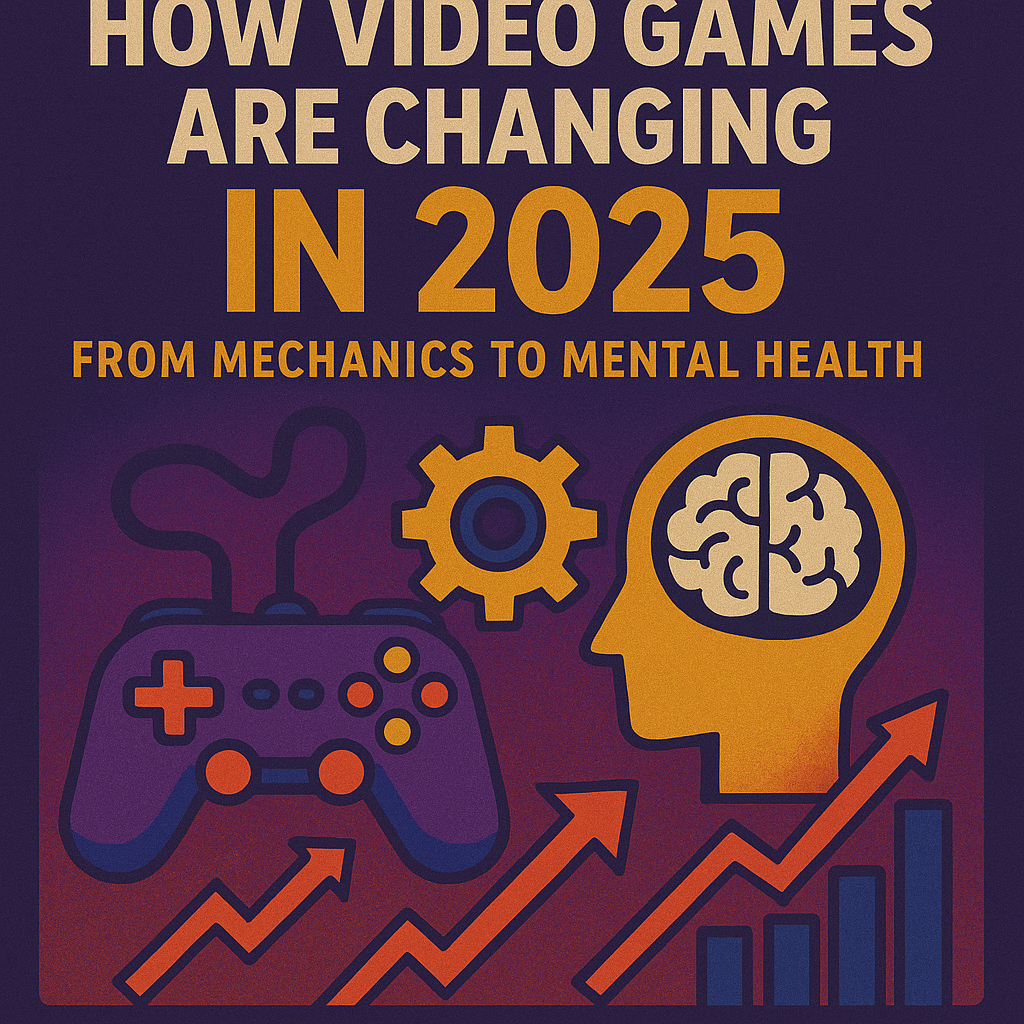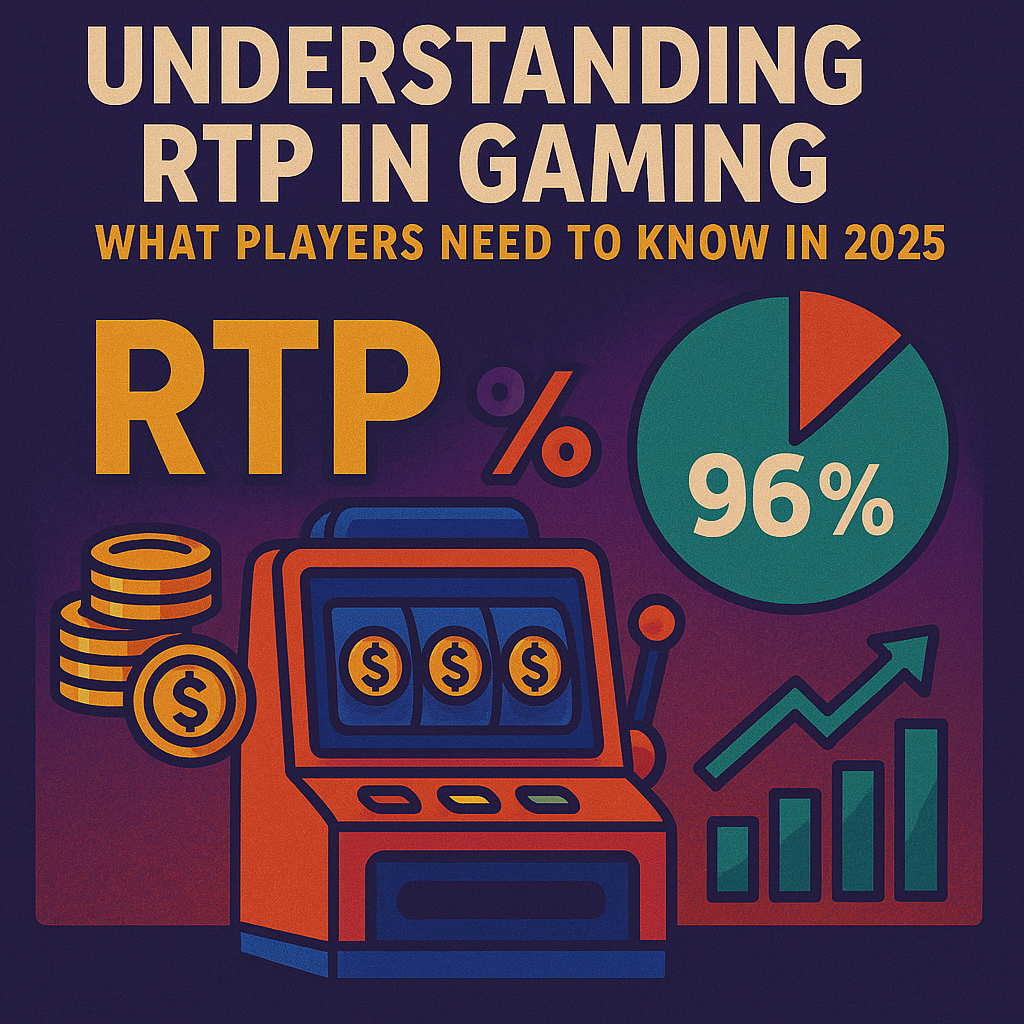Introduction: A New Era of Interactive Entertainment
The gaming industry in 2025 is no longer just a form of entertainment—it’s an ecosystem. Once seen as a niche hobby, video games have evolved into multi-billion-dollar platforms influencing technology, social behavior, and even healthcare. From cloud streaming to AI-driven storytelling, the landscape is shifting faster than ever before. But what exactly is changing, and what does it mean for players?
Let’s dive into the future of gaming—today.
1. Advanced Game Mechanics: The Rise of Adaptive Systems
In 2025, game mechanics are becoming smarter, more responsive, and player-centric. Developers are increasingly turning to artificial intelligence (AI) to enhance in-game behavior and decision-making.
Gone are the days when enemies would follow pre-scripted patterns. Today, NPCs in games like Eclipse Protocol and Sentinel Core adapt to your tactics. They learn from your playstyle, predict your moves, and evolve as the game progresses.
🔹 Dynamic Difficulty Adjustment (DDA) is now standard. This mechanic ensures that both casual and hardcore players get a tailored experience, adjusting the challenge based on your performance in real time.
🔹 Realistic physics engines have also been upgraded. Games like Neon Drift X use high-fidelity simulations for vehicle movement, destruction, and terrain deformation, bringing immersion to new levels.
2. Genre-Blending and Format Innovation
Genres aren’t what they used to be. In 2025, we’re seeing a blurring of lines between traditional formats.
- Shooter-RPG hybrids like GrindForge 2 combine fast-paced combat with deep lore and branching dialogues.
- Narrative deckbuilders and open-world puzzle games are gaining popularity, pushing players to think in new ways.
One notable trend is the emergence of episodic multiplayer storytelling. Instead of static campaigns, players now co-create stories through real-time decisions, similar to a blend between Until Dawn and Among Us.
Another innovation is AR-layered gaming. Titles like Urban Phantom allow players to scan their real environment and bring elements into the digital world, effectively merging physical space with gameplay.
3. Esports: The New Professional Dream
Esports continues to explode globally—and not just in South Korea or the U.S. In the UK alone, over 6 million viewers tuned in to esports events last year, with college leagues now offering scholarships and career paths.
Games like Valorant, Rocket League, and League of Legends remain dominant, but new titles like Clash Ring and Quantum Tactics are rising fast.
🔹 The biggest change? Localized UK tournaments with government-backed funding and youth development programs.
🔹 Player support systems like nutritionists, psychologists, and media coaches are now commonplace in pro teams.
But with fame comes pressure. Mental health challenges have become a hot topic in esports—and the industry is finally paying attention.
4. Mental Health & Wellness in Gaming
For years, video games were scapegoated as the cause of poor mental health. In 2025, they are increasingly becoming part of the solution.
Several new titles focus specifically on mindfulness, emotional processing, and neurodivergent accessibility.
- Quiet Grove is a narrative game designed to reduce anxiety.
- NeuroTune uses rhythmic puzzles to promote focus in players with ADHD.
- ReflectQuest adapts to your mood via biometric feedback from wearables.
Even mainstream AAA games now feature mental wellness mechanics, such as built-in breaks, non-intrusive breathing guides, and post-session self-assessments.
For players, this marks a shift from burnout to balance.
5. Looking Ahead: Ethics, Analytics, and the Metaverse
So what’s next?
- Predictive Analytics: Game companies are beginning to use big data to model player behavior and create highly customized experiences—but privacy is a growing concern.
- Ethics in Game Design: Loot boxes are being banned or regulated in more countries, and developers are being challenged to make monetization fair.
- The Metaverse: Still a buzzword, but actual use cases in gaming are evolving. Platforms like VersePlay allow cross-game avatars and economies, blurring the boundaries between games and virtual life.
One exciting development? UK-based developers are working on TheraVerse, a game world connected to real-world therapy tools.
Conclusion: The Game Is Evolving—Are You?
Video games in 2025 aren’t just about entertainment. They’re about innovation, connection, self-expression, and well-being. Whether you’re a casual gamer, an aspiring esports pro, or someone who just wants to escape the real world for a bit—this is your moment.
📣 So grab your controller (or keyboard), explore new genres, and play with purpose.



